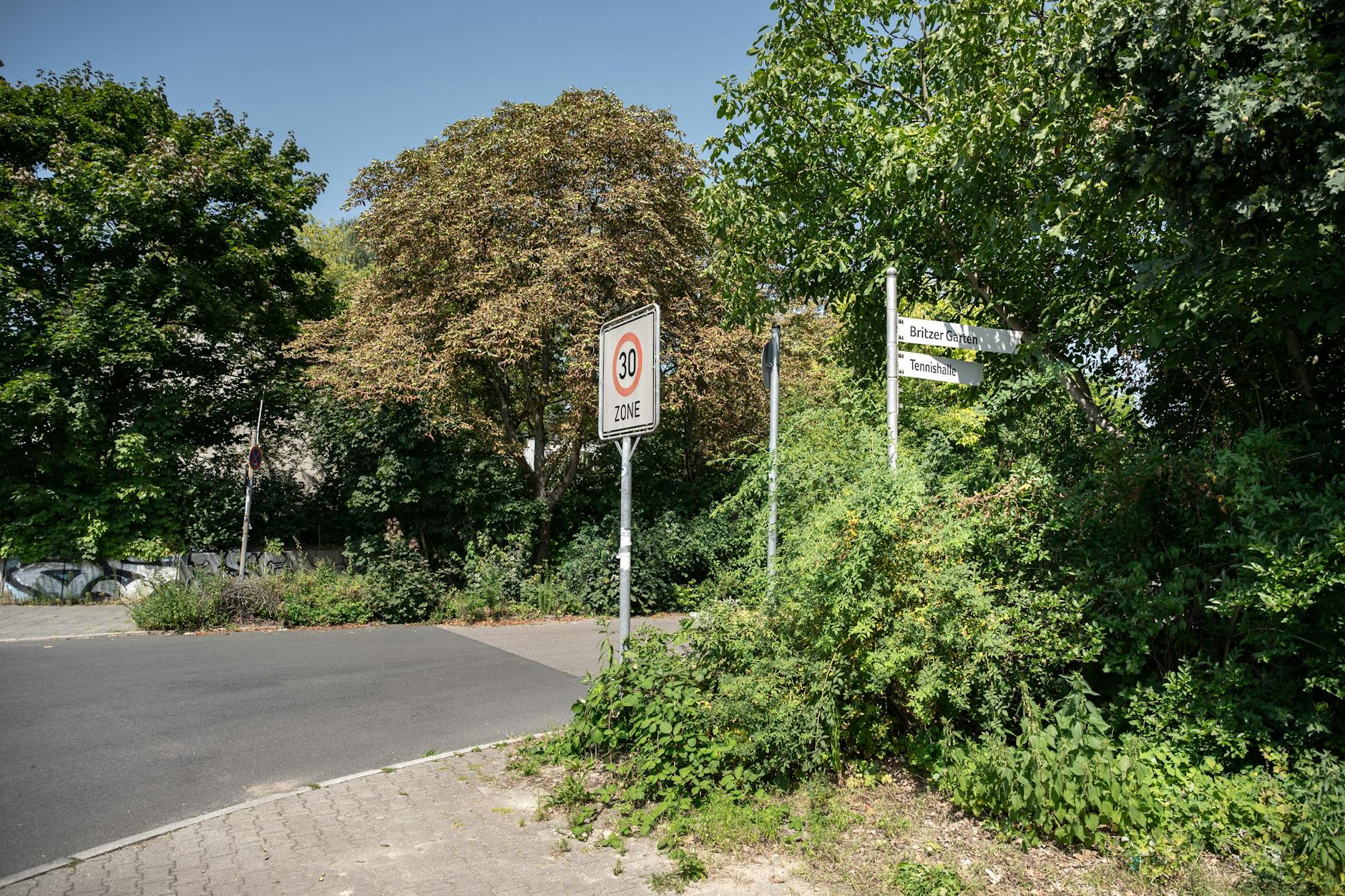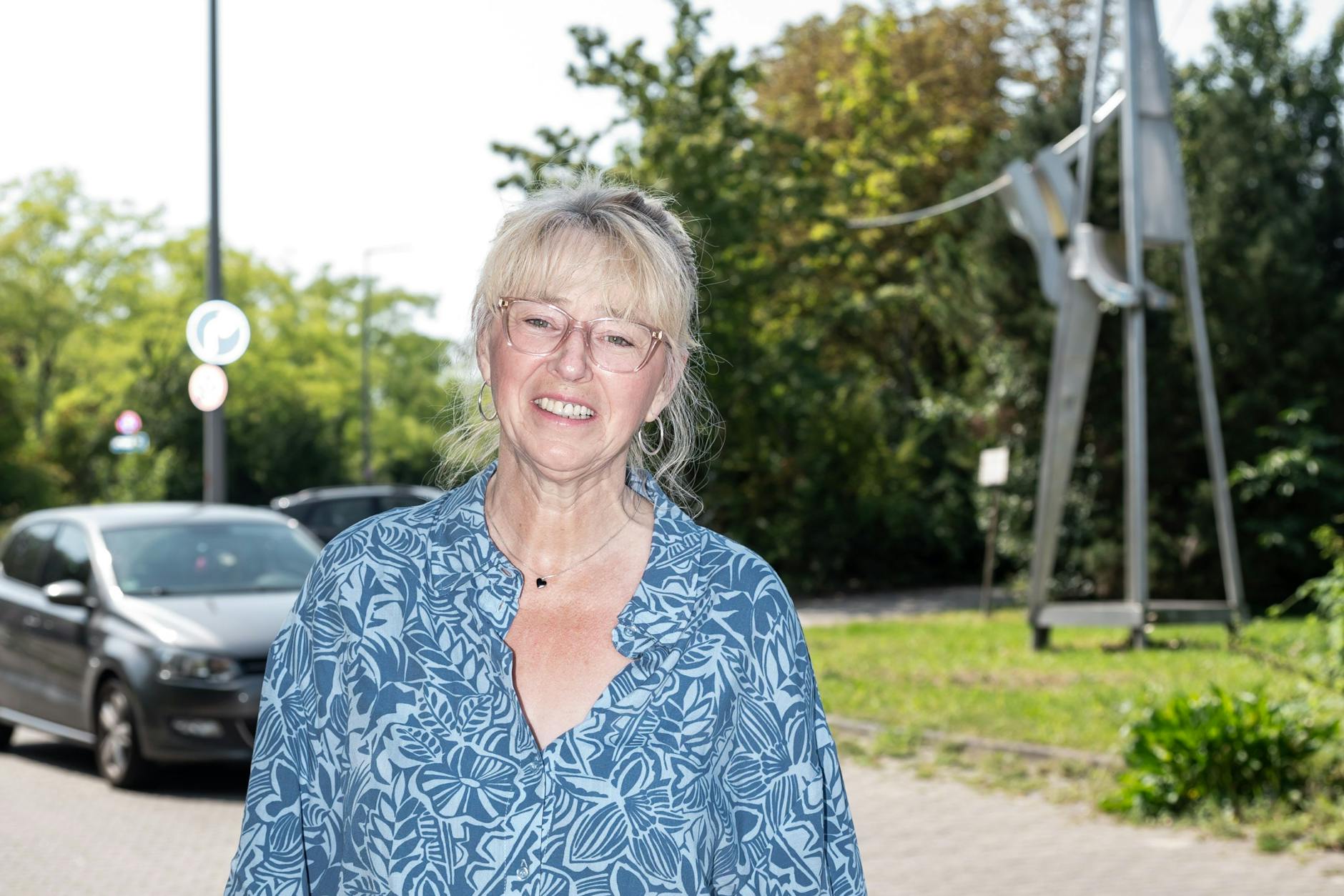Trouble over refugee accommodation in Britz: “Many now vote AfD”

The air is still this afternoon, 34 degrees Celsius, not a breath of wind. The heat shimmers over the asphalt of the Britzer Garten parking lot on Sangerhauser Weg, the bright white of the parked cars dazzling. A few meters further, leaves rustle in the shade of old trees; beyond them, the allotment gardens begin, neatly fenced, hydrangeas and tomato plants lined up in rows. Next to them are social housing and a yellow, modern apartment building.
Frank Kniehase stands there at his garden fence, his gaze directed toward the sun, as if trying to memorize the place before disappearing back into the shadows. "I've lived here for 25 years," he says, pointing with his arm toward the area almost bordering his property. "And now a container village is supposed to be built here. Over 350 people. Just like that." His forehead is shining, and he crosses his arms as if he's bracing himself against something invisible.
He's referring to the planned container village, a three-part complex of residential containers with bedrooms, communal kitchens, and bathrooms. It's scheduled to be completed in early 2026. The cost: €23 million over three years, or approximately €65 per space per day. Excavators are scheduled to arrive in September 2025, and the first residents are expected to move in at the beginning of 2026.
"No one will be deprived of anything," District Mayor Martin Hikel (SPD) assured disgruntled residents at the Leonardo da Vinci High School at the end of June. Sitting next to him at the time was State Secretary for Social Affairs Aziz Bozkurt (SPD), who explained that it was simply about giving people a roof over their heads. Sascha Langenbach from the State Office for Refugee Affairs spoke of emergency shelters that were "bursting at the seams." Sangerhauser Weg was public land, so there were no rental costs.
Residents: “District politicians sit around apathetically like in the Bundestag”To Kniehase, this sounds like a platitude. "The district politicians sit around apathetic, like they're in the Bundestag, playing on their cell phones, and uninterested in the concerns of the citizens." He tells of a neighbor with two young sons who is "almost traumatized" because she fears that "young men from Africa" might move in. His biggest concern: "That it's a riot here from 10 p.m. onwards. Normal German families finish at 4 p.m., have to work the next day – and then things really get going here."
Kniehase is part of the "Aktion Sangerhauser Weg" initiative. He and others distribute flyers. The manager of the nearby nursery also participates, as do members of the Friedland allotment colony . "They just fool us," he says. "They always say everything will work out. But nobody tells us the truth."

He snorts: "That's exactly the stuff the AfD capitalizes on." His voice sounds both annoyed and resigned. "Many people here are now voting for the AfD. They say: For us, this is now a real alternative. And I actually understand that – because they simply feel abandoned by politicians. They don't care about us, but suddenly there's money for projects like this. At the same time, everything is getting more expensive: Social security contributions are rising, food prices as well, and in the end, you ask yourself: Who's going to pay for all of this? That's the perfect breeding ground for protest parties."
Legally, the initiative is now pinning its hopes on a seemingly bizarre one: a protected species of toad and rare beetles on the site. "We don't see any other option." The protected creatures are supposed to ensure that construction is prohibited.
Britzer on the container village: “This is not humane”A neighbor, who wishes to remain anonymous, is leaning against his car. He, too, feels "overrun." "There's only Edeka and Nahkauf here. Daycare centers and schools are full. And now the refugees are supposed to be fenced in here, too?" First, they said, only men would be coming, then families, then mothers with children. "It's not humane to house them in a parking lot." He has "never seen anything" of the " Kröten " (toad), which the initiative cites. He fears that right-wing groups will be attracted—the AfD is already exploiting the issue, and there have been riots at rallies.

Christiane Böttcher, spokesperson for the initiative, has been putting it soberly for weeks: "Right next to one of Berlin's largest recreational areas, in a parking lot between truck traffic and exhaust fumes – it's a lose-lose situation for everyone." She repeatedly points to the "immense parking pressure" during major events in Britzer Garten. 60 percent of the parking spaces would disappear. "But the biggest problem is the social infrastructure. There's nothing here to accommodate people. Not even proper shopping facilities."
Sylvia Kück appears among the voices of resistance, blonde, arms loosely folded, a smile despite the sweltering heat. She lives around the corner and doesn't fundamentally oppose the project. "Nobody wants to lose their home, nor live in a container. I hope this is just a transitional phase." She's the last person to say: That's not possible. "But I would like to see alternatives." The mood is also heated because the residents are always presented with a fait accompli. "This plays into the hands of the AfD. In the past, these were just frustrated voters; today, there's a large faction that wants the party to pursue a tougher migration policy ."
The sun is still high, the air shimmers, and the rumble of passing trucks mingles with the noise. A crumpled flyer from the initiative lies at the edge of the parking lot. Somewhere in the bushes, some hope, a toad is waiting to become the symbol of a fight that many here have long considered lost.
Berliner-zeitung


